The integration of Artificial Intelligence (AI) in content creation has fundamentally changed the landscape for marketers and content creators. As tools like generative AI and AI-driven personalization evolve, the potential for efficient content generation becomes increasingly evident. However, the ethical implications of employing such technologies merit thorough examination, particularly concerning their impact on human creativity, authenticity, and audience engagement. This comprehensive guide will analyze the advancements of AI in content marketing, the challenges of ensuring unbiased AI outputs, the new quality guidelines, and the necessity of maintaining human elements in this evolving field. The aim is to equip content creators and digital marketers with essential insights and strategies to navigate the complex relationship between human creativity and AI in content creation.
Understanding the Landscape of AI in Content Creation
AI technology has rapidly advanced, producing significant shifts in content creation practices. Platforms such as ChatGPT and Google's Gemini 2.0 now facilitate the creation of high-quality marketing materials, including blog posts and social media updates, while enabling substantial time savings for marketers. These advancements can increase productivity significantly, allowing content creators to focus on more strategic initiatives. For instance, companies leveraging predictive analytics achieve up to 85% accuracy in anticipating consumer behavior, thus customizing content effectively.
Nevertheless, the power of AI brings inherent responsibilities. The significance of ethical AI use is critical; marketers must rigorously ensure that their content avoids propagating biases or misinformation that may arise from insufficiently trained AI models. Unregulated AI usage can damage credibility and erode trust with audiences, highlighting the necessity of ethical considerations in the integration of these technologies.
This chart compares the productivity and engagement rates of AI-generated content with human-generated content, illustrating the effectiveness of AI in content marketing. (Source: Neil Patel)
The Challenges of Maintaining Unbiased AI Outputs
While AI holds considerable potential, establishing unbiased AI systems presents significant challenges. Bias in AI training data often arises from unrepresentative datasets or flawed algorithms, which can unintentionally reinforce stereotypes or misinformation in generated content. Content marketers must recognize the origins of bias to develop effective strategies to mitigate their impacts.
Various methods can be employed to ensure fair AI outcomes, such as diversifying training data, implementing audits to identify biases, and continuously updating AI systems based on insights from these audits. Regular bias assessments align AI outputs with ethical standards, responding to an increasing demand from audiences for transparency and fairness from brands utilizing AI technologies.
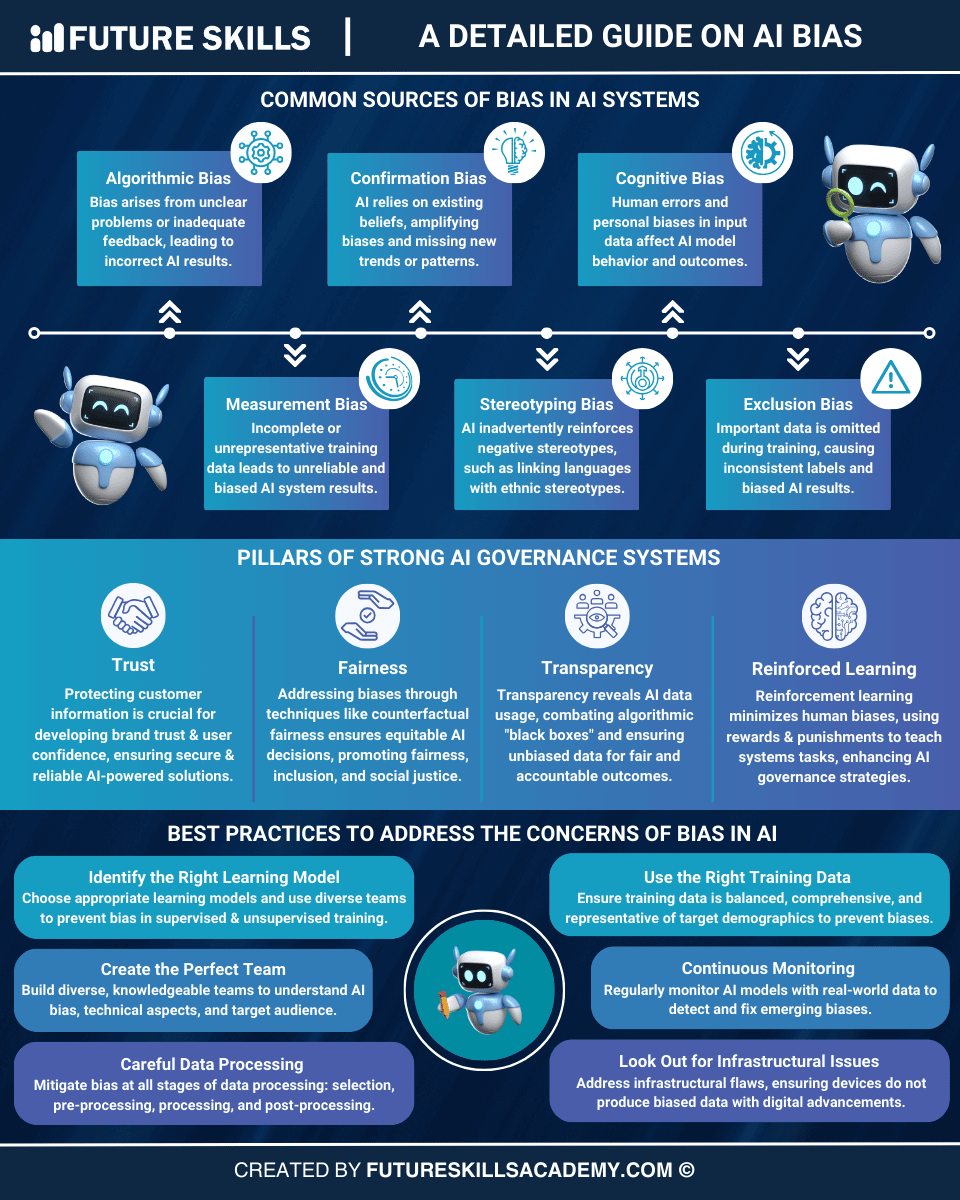
An infographic detailing statistics related to consumer concerns regarding biases in AI-generated content, emphasizing the ethical implications. (Source: Future Skills Academy)
Aligning with New Quality Guidelines for AI Content
As AI continues to reshape content creation, understanding and adhering to quality guidelines is essential for marketers. Regulatory frameworks such as the EU AI Act and the California AI Transparency Act are emerging to govern AI-generated content. These regulations categorize AI systems based on risk levels, with most content generation tools likely classified as limited risk, mandating transparency regarding their use.
Labeling AI-generated content is not only a regulatory requirement; it enhances consumer trust and accountability. Marketers must familiarize themselves with the evolving regulatory landscape to ensure compliance with local and international standards. By doing so, they can not only avoid penalties but also establish a reputation as a responsible and ethical organization in a rapidly changing environment.
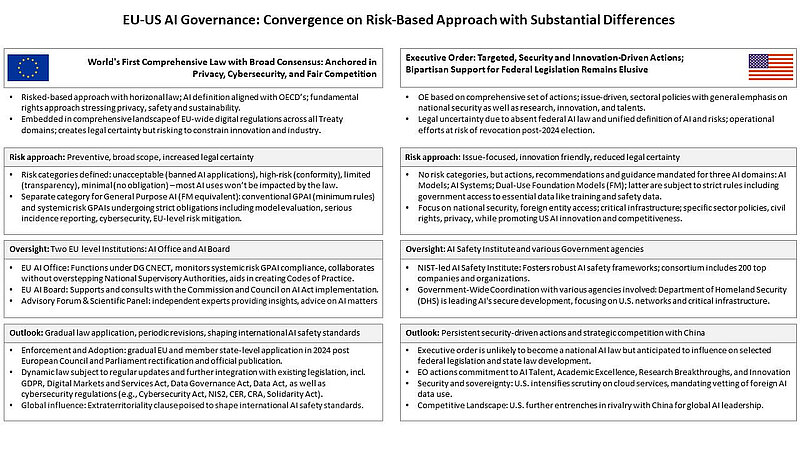
A comparison chart illustrating the regulatory frameworks for AI governance between the European Union and the United States, focusing on implications for marketing practices. (Source: Hertie School)
Preserving Human Creativity in an AI-Driven World
The convergence of AI and human creativity offers both opportunities and challenges. As AI tools become more prevalent, marketers must integrate these technologies without sacrificing the unique emotional connections and narratives that human-generated content delivers. Research shows that many consumers favor human-generated content, underscoring the importance of maintaining the human element.
To ensure authenticity while leveraging AI capabilities, content creators can employ narrative techniques and draw from personal insights that resonate with audiences. Achieving this balance between AI's efficiency and the creativity inherent in human expression is essential for brands seeking to engage consumers genuinely.
Examples of content that resonate due to human creativity versus AI-generated content, showcasing emotional engagement differences. (Source: LinkedIn)
Assessing the Risks of Automation in Content Writing
Increasing reliance on AI in content writing necessitates awareness of potential risks. Overdependence on AI can jeopardize brand authenticity and dilute the emotional impact of messaging. Studies indicate that while many consumers engage with AI-generated content, distrust may arise upon discovering that the content lacks a human touch.
Moreover, the potential for reduced consumer engagement amplifies these concerns. Brands must recognize AI's limitations and the importance of maintaining genuine connections within their marketing strategies.
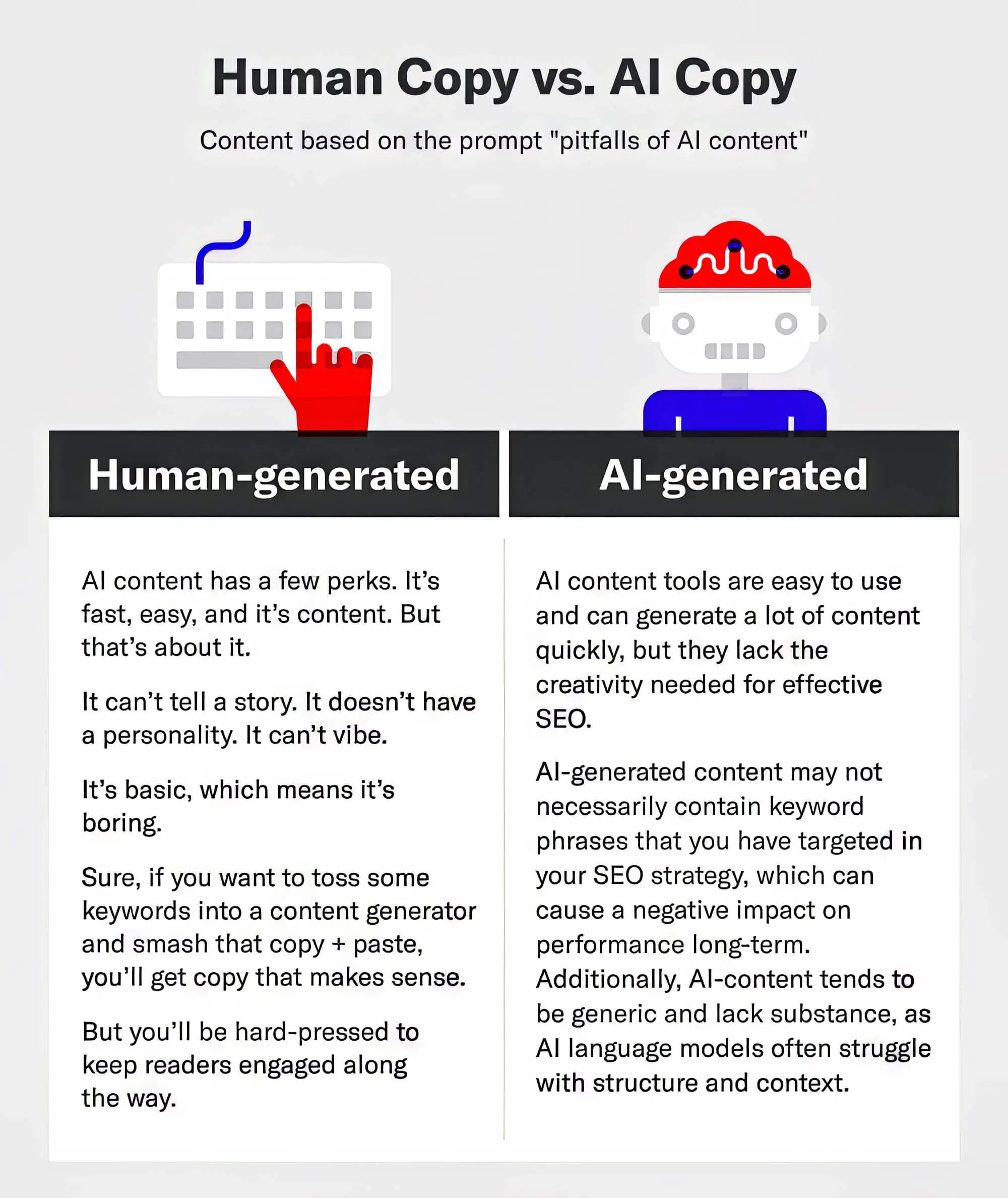
A diagram highlighting the balance between leveraging AI for efficiency in writing while maintaining personal connections within content. (Source: Zeve)
Best Practices for Ethically Integrating AI Tools
Despite the challenges associated with AI use, marketers can adopt several best practices to ethically integrate AI tools into their content creation processes. Developing a comprehensive brand voice guide serves as a foundation for consistent messaging across both AI-generated and human-created content.
In addition, the implementation of a layered review process for content approval ensures that outputs align with brand values and emotional tone. Furthermore, transparency regarding AI usage in content creation fosters trust and reinforces the view of AI as a tool intended to enhance, rather than replace, human creativity.

A checklist summarizing best practices for integrating AI tools in content marketing to ensure ethical use while preserving brand voice. (Source: Zeka Graphic)
Transforming Content with Human-AI Collaboration
Examining real-world examples can provide insights into achieving a balance between AI capabilities and human creativity. Numerous brands have successfully integrated AI into their content strategies without compromising authenticity. For instance, platforms like Runway AI have democratized high-quality content production, allowing brands to maintain authentic storytelling while benefiting from AI's efficiency.
Successful case studies illustrate the potential of human-AI collaboration, demonstrating how brands can enhance their outreach by utilizing AI tools to complement, rather than supplant, human creativity.
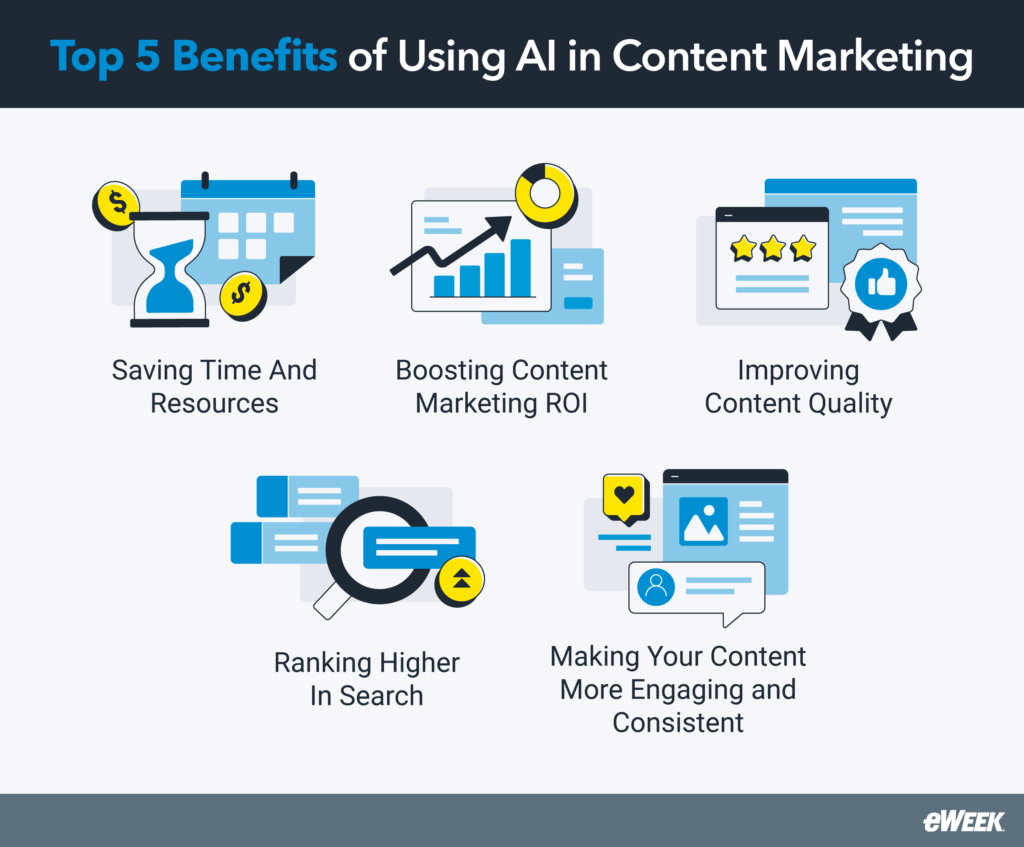
Visuals that depict successful case studies of brands effectively utilizing AI in their content initiatives while maintaining a human touch. (Source: eWeek)
Looking Ahead: The Future of Ethical AI in Marketing
As the landscape of AI in content creation continues to evolve, marketers must remain attuned to emerging trends. Recognizing and preparing for upcoming regulatory changes is crucial for success. As consumers become increasingly educated about AI technologies, businesses must prioritize transparency and ethical practices to build trust.
The future of content marketing will lie at the intersection of technology and authenticity, focusing on leveraging insights from AI while preserving the human elements that drive consumer engagement and loyalty.

A futuristic graphic illustrating how AI is shaping the future of digital marketing and content creation strategies. (Source: Zeka Graphic)
In conclusion, the integration of AI in content creation presents both challenges and opportunities. While AI has the capacity to enhance efficiency and personalization, marketers must navigate the complexities of ethical usage, bias mitigation, and audience trust. Striking a balance between technological innovation and human creativity will be key to establishing genuine connections with consumers and ensuring the long-term success of AI-driven marketing strategies. By embracing ethical practices and remaining responsive to consumer sentiments, brands can responsibly and effectively harness the power of AI.
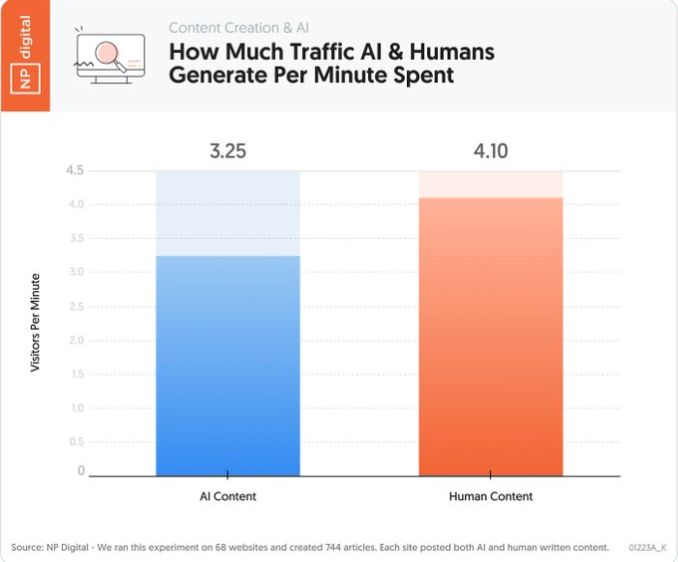

கருத்துக்கள் (0)
உள்நுழைக சர்ச்சையில் பங்கேற்க அல்லது .